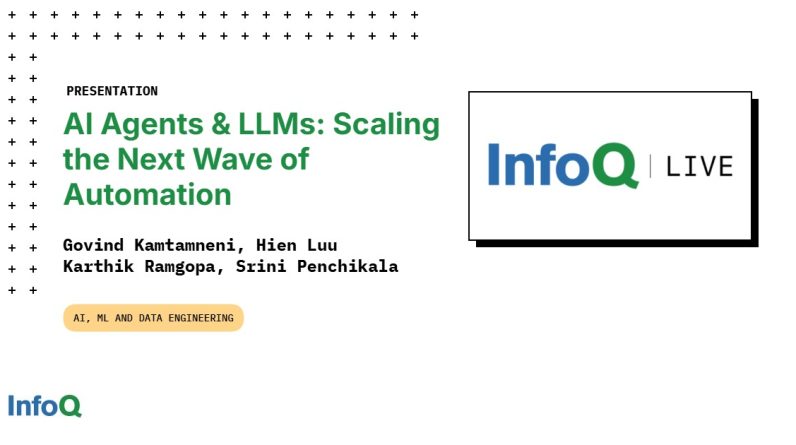The digital realm is on the brink of a revolution with the inception of Quantum Artificial Intelligence (AI), a cutting-edge technology poised to enhance collaboration and innovation in numerous sectors. With its exceptional processing capabilities, Quantum AI introduces a new era for deepfake detection, positioning it as an essential tool in the battle against misinformation spread across social media platforms. It’s not just about countering false content; Quantum AI also promises to transform the landscape of data centers, augmenting efficiency and promoting sustainability by processing complex tasks at extraordinary speeds while potentially reducing energy consumption.
The emergence of Quantum AI sets the stage for a paradigm shift in data security, presenting Quantum Key Distribution (QKD) as a novel encryption method capable of protecting sensitive information in an increasingly digitalized world. Furthermore, Quantum AI’s collaborative potential with classical computing systems heralds a synergistic relationship reminiscent of the CPU-GPU dynamics, expanding computational capabilities and fostering a more potent tech ecosystem.
While the initial barriers – like the scarcity of quantum resources, the skill gap in quantum programming, and the traditionally slow adoption rates in certain industries – may limit access to this technology, its adaptable nature encourages a concerted effort to surmount these challenges. This paves the way for a universally beneficial outcome, breaking down industry silos and facilitating shared progress.
Quantum AI is not merely a technological breakthrough; it’s a beacon for constructive transformation. By embracing the power of Quantum computing, society unlocks new dimensions of creativity, encourages cooperative advancement, and steps confidently towards a future enriched by Quantum AI’s promise of precision and integrity in the digital landscape.
In sum, Quantum AI is set to redefine our online world, offering innovative solutions to deepfake challenges and security concerns, unlocking the promise of advanced collaboration, and pushing the envelope for sustainable computing practices.
Quantum Artificial Intelligence (AI) and Its Industry Impact
Quantum AI is expected to have a profound impact on several sectors, ranging from cybersecurity to pharmaceuticals, finance, and beyond. Its capability to handle complex calculations at unprecedented speeds makes it a transformative technology for industries that require high-level computation and data analysis. The processing power of quantum computers, combined with AI algorithms, can lead to significant advancements in drug discovery by simulating molecular interactions at a level of detail far beyond what is possible with classical computers. In the financial sector, Quantum AI can optimize trading strategies, risk management, and fraud detection.
Market Forecasts and Growth Potential
Market forecasts suggest that the quantum computing industry will grow substantially over the next decade. According to various market research reports, the quantum computing market size could reach billions of dollars, with Quantum AI being a significant contributor to this growth. The explosive potential growth is driven by the increasing demand for superior computing power and the need for secure communication, which Quantum Key Distribution (QKD) can provide.
Issues and Challenges Faced by the Quantum AI Industry
Despite the promising potential of Quantum AI, the industry faces substantial challenges. The current scarcity of quantum resources highlights the need for investment in quantum technology and infrastructure. Moreover, there is a significant skills gap in quantum programming, which requires specialized knowledge that is currently in short supply. The traditionally slow adoption rates of new technologies in certain industries also pose a hurdle for rapid integration of Quantum AI into existing systems.
Furthermore, potential issues of quantum computing, such as error rates and the instability of qubits, must be addressed to fully realize the technology’s potential. Ensuring the security of quantum systems against not just classical but also future quantum attacks is an ongoing concern, which makes the development of Quantum-resistant encryption methods critical.
Final Reflections on Quantum AI’s Promising Future
Despite the obstacles, the adaptability of Quantum AI may lead to a future where it is as ubiquitous as classical computing is today. As researchers and industry professionals work to overcome initial barriers, the collaborative efforts within the field are forging pathways to integrate Quantum AI into the mainstream. With its vast potential, Quantum AI stands not just as a technological advancement but as a driving force for interdisciplinary integration, sustainability, and enhanced security across various digital platforms.
For those interested in exploring the broader context of Quantum AI and staying abreast of the industry, reliable information sources and industry news can be found at authoritative domains such as IBM and Google, which are actively involved in research and development of quantum technologies.
Quantum AI is set to redefine not just the digital realm but many aspects of our lives by offering innovative solutions, facilitating advanced collaboration, and pushing the envelope for sustainability and ethical computing practices. The digital revolution is at our doorstep, and Quantum AI is the key to unlocking its full potential.

Jerzy Lewandowski, a visionary in the realm of virtual reality and augmented reality technologies, has made significant contributions to the field with his pioneering research and innovative designs. His work primarily focuses on enhancing user experience and interaction within virtual environments, pushing the boundaries of immersive technology. Lewandowski’s groundbreaking projects have gained recognition for their ability to merge the digital and physical worlds, offering new possibilities in gaming, education, and professional training. His expertise and forward-thinking approach mark him as a key influencer in shaping the future of virtual and augmented reality applications.






